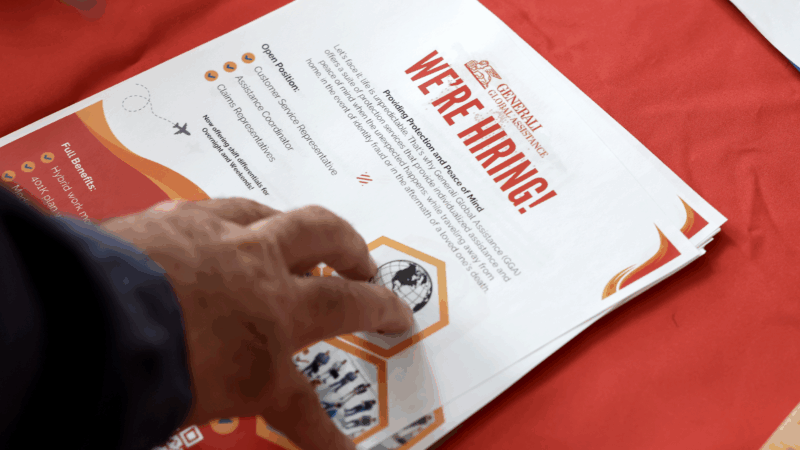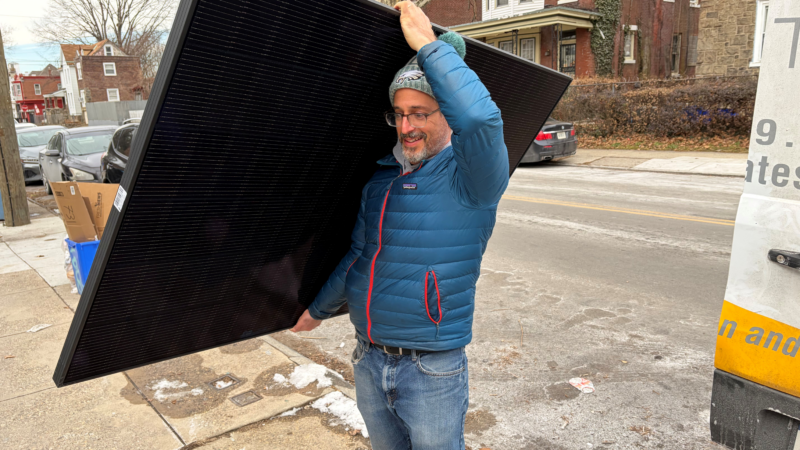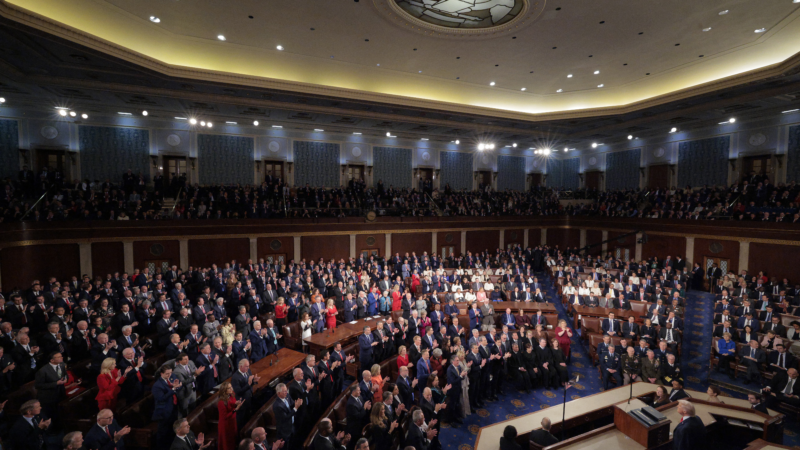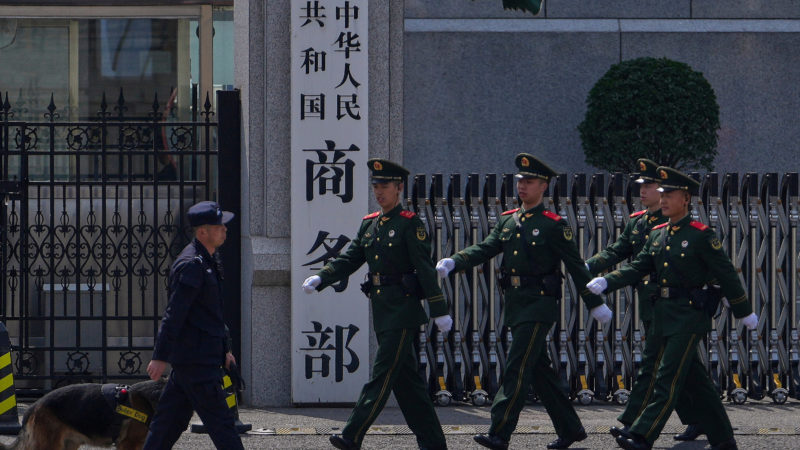The U.S. job market cooled slightly as Trump’s trade war heated up
Hiring slowed just slightly in April, as President Trump’s trade war began to weigh on the wider economy.
U.S. employers added 177,000 jobs last month, according to figures released Friday by the Labor Department. That’s down modestly from the previous month, when revised figures show employers added 185,000 jobs, but the drop was smaller than forecasters had expected as the president’s trade war intensified. The unemployment rate held steady at 4.2%, even as more than half-a-million people joined or rejoined the workforce.
Jobs were added in hospitals, restaurants and warehouses in April, while the federal government continued to shed workers. Employment gains for February and March were revised down by a total of 58,000 jobs.
The president announced sweeping new tariffs at the beginning of last month. While some of those import taxes have since been suspended, the average tariff rate is still the highest it’s been since at least the Great Depression. Forecasters at the International Monetary Fund predict the import taxes will result in higher prices and slower economic growth.
The trade war has already taken a toll on the stock market. As of Thursday, the S&P 500 index was down about 6.5% from inauguration day. Trump’s tariffs have also rattled consumers, who are increasingly gloomy about the economic outlook. An index of consumer confidence fell in April to its lowest level since the onset of the pandemic.
Loading…
Manufacturers are reeling
Manufacturers, many of whom rely on imports for components or raw materials, are also struggling.
Factories cut 1000 jobs in April.
A survey conducted by the Institute for Supply Management found factory orders and output declined in April, while prices increased. Factory managers’ biggest concern, by far, was tariffs.
“We’re on the edge of a cliff,” said Tim Fiore, who oversees the monthly survey. “Hopefully we won’t go over it but the signs right now are not positive, for sure.”
Loading…
The U.S. economy was already faltering when Trump announced the widespread tariffs on April 2. Economic output shrank in the first three months of the year as businesses and households braced for the looming trade war.
The health of the job market will be an important factor in whether the economy continues to shrink or begins to rebound. So long as people are working and earning money, they’ll be able to keep spending, which is the main driver of the economy. If employment drops sharply or people are worried about losing their jobs, they may be more reluctant to spend, which could tip the economy into recession.
Average wages in April were up 3.8% from a year ago. That’s similar to the wage gains recorded in March, and probably more than enough to outpace rising prices.
When a horse whinnies, there’s more than meets the ear
A new study finds that horse whinnies are made of both a high and a low frequency, generated by different parts of the vocal tract. The two-tone sound may help horses convey more complex information.
Hundreds of American nurses choose Canada over the U.S. under Trump
More than 1,000 American nurses have successfully applied for licensure in British Columbia since April, a massive increase over prior years.
Trump’s many tariff tools mean consumer prices won’t go down, analysts say
The Supreme Court struck down President Trump's signature tariffs. But the president has other tariff tools, and consumers shouldn't expect cheaper prices anytime soon, economists say.
Tax credits for solar panels are available, but the catch is you can’t own them
Rooftop solar installers are steering customers toward leases instead of purchases. Federal tax credits for purchased systems have ended but are still available for leased ones.
5 takeaways from Trump’s State of the Union address
President Trump hit familiar notes on immigration and culture in his speech Tuesday night, but he largely underplayed the economic problems that voters say they are most concerned about.
China restricts exports to 40 Japanese entities with ties to military
China on Tuesday restricted exports to 40 Japanese entities it says are contributing to Japan's "remilitarization," in the latest escalation of tensions with Tokyo.







